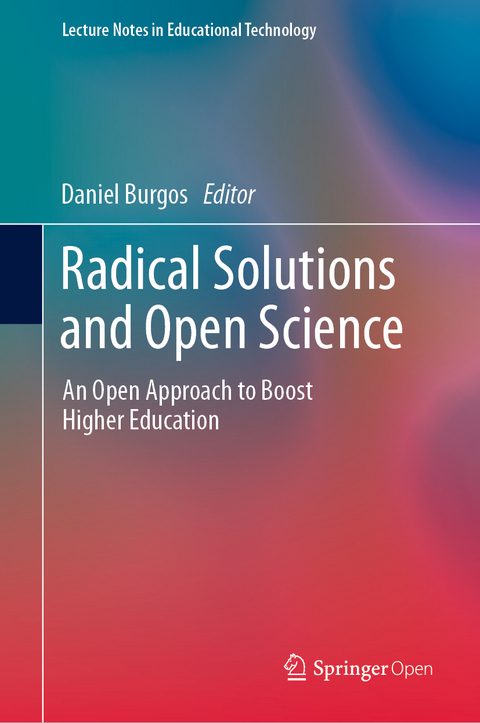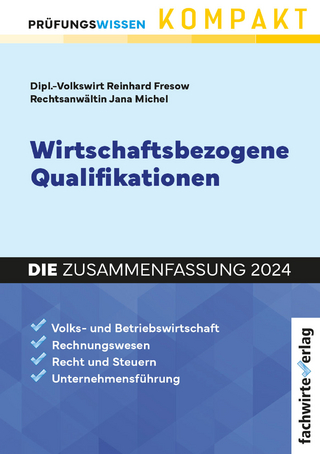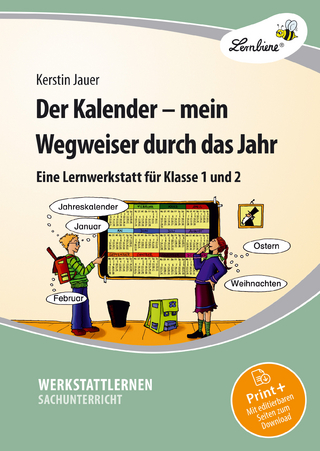
Radical Solutions and Open Science
Springer Verlag, Singapore
978-981-15-4275-6 (ISBN)
This book presents radical, transgenic solutions for recurrent and long-standing problems in Higher Education. Every chapter presents a clear view and a related solution to make Higher Education progress and implement tools and strategies to improve the user’s performance and learning experience. This book is part of a trilogy with companion volumes on Radical Solutions & Learning Analytics and Radical Solutions & eLearning.
Prof. Dr. Daniel Burgos works as a Full Professor of Technologies for Education & Communication and Vice-rector for International Research (UNIR Research), at Universidad Internacional de La Rioja (UNIR). In addition, he holds the UNESCO Chair on eLearning and the ICDE Chair in Open Educational Resources. He works also as Director of the Research Institute for Innovation & Technology in Education (UNIR iTED). His interests are mainly focused on Educational Technology & Innovation: Adaptive/Personalised and Informal eLearning, Learning Analytics, Social Networks, eGames, and eLearning Specifications. He has published over 130 scientific papers, 15 books and 15 special issues on indexed journals. He is or has been involved in +55 European and Worldwide R&D projects, with a practical implementation approach. He also works as a Professor at An-Najah National University (Palestine), an Assistant Professor at UniversidadNacional de Colombia (UNAL, Colombia), and a Visiting Professor at Coventry University (United Kingdom) and Universidad de las Fuerzas Armadas (ESPE, Ecuador). He has been chair (2016, 2018) and vice-chair (2015, 2017) of the international jury for the UNESCO King Hamad Bin Isa Al Khalifa Prize for the Use of ICTs in Education. He is a consultant for United Nations Economic Commission for Europe (UNECE), European Commission, European Parliament, Russian Academy of Science and ministries of Education in over a dozen countries. He is an IEEE Senior Member. He holds degrees in Communication (PhD), Computer Science (Dr. Ing), Education (PhD), Anthropology (PhD), Business Administration (DBA) and Artificial Intelligence (MIT, postgraduate).
1 Open Science as a way of Education Diversity.- 2 Open Licensing, Publishing and Accreditation.- 3 Integration of Formal and Informal Education Through Open Content.- 4 Open Data and Research Processes.- 5 Open Educational Resources: Development.- 6 Open Educational Resources: Assessment.- 7 Open Educational Resources: Quality.- 8 Open, Universal and Free Access to Education.- 9 Open Software as Cultural Heritage.- 10 Integration of Open Science with Regular Academic Programmes.- 11 The Student as a Center of His Learning Itinerary. The Prosumer Role.- 12 The Teacher as a Facilitator of the Student’s Self-Learning Itinerary. The Mentoring Role.- 13 The Institution as an Ecosystem for Integration and Learning Sharing.- 14 Case Study 1: Practical Use of Open Science in the Classroom.- 15 Case Study 2: Practical Use of Open Science in the Classroom.
| Erscheinungsdatum | 26.05.2020 |
|---|---|
| Reihe/Serie | Lecture Notes in Educational Technology |
| Zusatzinfo | 14 Illustrations, color; 18 Illustrations, black and white; XX, 187 p. 32 illus., 14 illus. in color. |
| Verlagsort | Singapore |
| Sprache | englisch |
| Maße | 155 x 235 mm |
| Themenwelt | Schulbuch / Wörterbuch ► Unterrichtsvorbereitung ► Unterrichts-Handreichungen |
| Geisteswissenschaften ► Psychologie ► Pädagogische Psychologie | |
| Sozialwissenschaften ► Pädagogik ► Erwachsenenbildung | |
| Sozialwissenschaften ► Pädagogik ► Schulpädagogik / Grundschule | |
| Schlagworte | Alternative Digital Credentials • open access • Open Data • Open Educational Practices • Open Educational Resources • Open Licensing • Open Research • open science • Open Source • Open Technology |
| ISBN-10 | 981-15-4275-9 / 9811542759 |
| ISBN-13 | 978-981-15-4275-6 / 9789811542756 |
| Zustand | Neuware |
| Haben Sie eine Frage zum Produkt? |
aus dem Bereich


